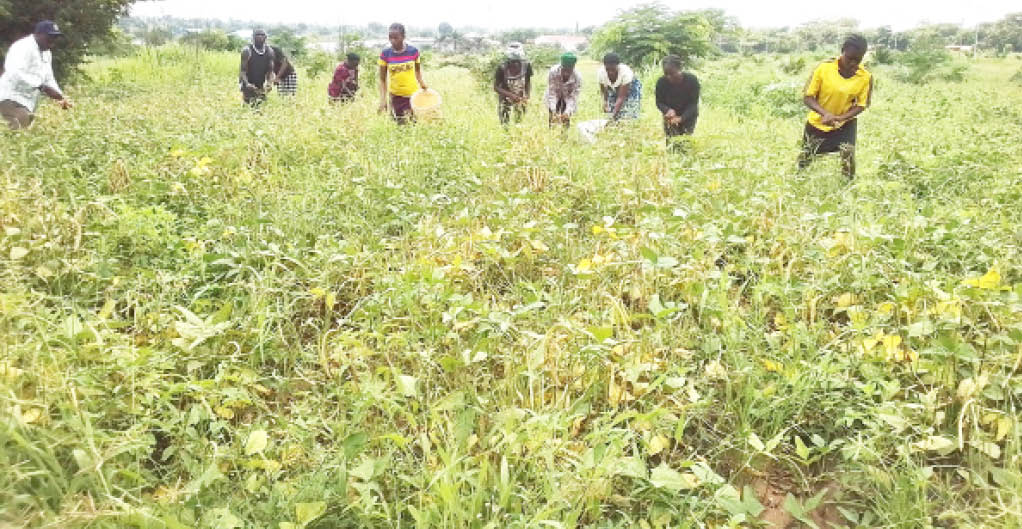The 2024 National Agric Show comes to an end tomorrow after three days of highlighting and showcasing latest innovations, business opportunities and networking among farmers, technology developers and service providers.
This year’s edition is the 16th, and despite the nation’s issues of rising inflation and cost of living, many farmers and other stakeholders attended the show to exhibit and present their products, technologies, and services.
Organisers said the theme for this year, “Incentivising Smallholder Farmers (SHFs) or Small-Scale Processors (SSPs) to Scale for the Attainment of Food Security in 2025,” was chosen to draw the attention of the federal government to the fact that achieving food security is possible next year if focus is shifted to farmers and processors at the smallholder level.
Despite being important contributors to Nigeria’s agricultural economy, smallholder farmers and small-scale processors still face obstacles like restricted access to capital, technology, modern farming equipment, and market opportunities, which restrict their ability to further support our country’s food security objectives.
- ABU alumni hosts 2024 lecture, dinner, award night
- Reps probe DisCos over failure to replace obsolete metres
However, the absence of both ministers of Agriculture and Food Security, Abubakar Kyari (Main Minister), Dr Aliyu Sabi Abdullahi (Minister of State for Agriculture) and Idi Mukhtar Maiha, Minister of Livestock Development, governor of Nasarawa State (host state), Engineer Abdullahi Sule, the Food and Agriculture Organisation (FAO), which used to be a strong partner at the opening ceremony, sparked many discussions among stakeholders about the future of the show.
Previously, these dignitaries would attend this annual farmers’ fiesta, which boosted participant morale.
The programme was also influenced by the challenges of the economic crisis, which increased prices and diminished many people’s purchasing power.
In spite of these problems, the event was well attended by key players. The National Centre for Agricultural Mechanisation (NCAM) in Ilorin, Kwara State, was among the major stakeholders that demonstrated a strong presence with a variety of technologies.
Some of the technologies include processing machinery for rice and oil palm milling, as well as a three-row planter with fertiliser applicator that allows customers to manage planting operations more easily.
A variety of field operations machines were also on display at the show ground. These included a yam heap-making machine, one of their latest breakthroughs to alleviate drudgery in yam farming, and a variety of other technologies displayed to gain farmer support.
Although inflation has increased prices in comparison to those declared at the previous shows, information from the centre indicates that farmers can contact the institution as a group and agree on a plan to make affordability easier. They might also request specific functionality be added in the technology they desire.
The National Animal Production Research Institute in Zaria, which developed the first Shika Brown chicken, was also in attendance. The institute featured a variety of livestock-related innovations, including animal feed technology. Other developers demonstrated a variety of additional livestock technologies.
The Institute of Agricultural Research, based in Zaria, also contributed a variety of advancements in seed and equipment, including planters, threshers, and a plethora of new seed technologies.
Aside from these research institutes, some states demonstrated a prominent presence. Kano State, as usual, had the largest participation, with all 44 local governments represented with a variety of traditional crops, agriculture technology, livestock, horticulture, and irrigation.
Kano also brought some animals to the exhibition, which was a popular sight among both secondary and primary school students.
Kano was closely followed by Nasarawa, the host state, which also showed its capabilities.
However, the number of states that attended the show this year was not impressive compared to previous editions, where more than 10 states, including representatives of commodity associations, showed strong presence.
Conversely, there were a lot of value chain entrepreneurs.
The event will come to a close tomorrow at the Kilometre 26 Abuja-Keffi Expressway at the outskirts of Abuja.

 Join Daily Trust WhatsApp Community For Quick Access To News and Happenings Around You.
Join Daily Trust WhatsApp Community For Quick Access To News and Happenings Around You.


